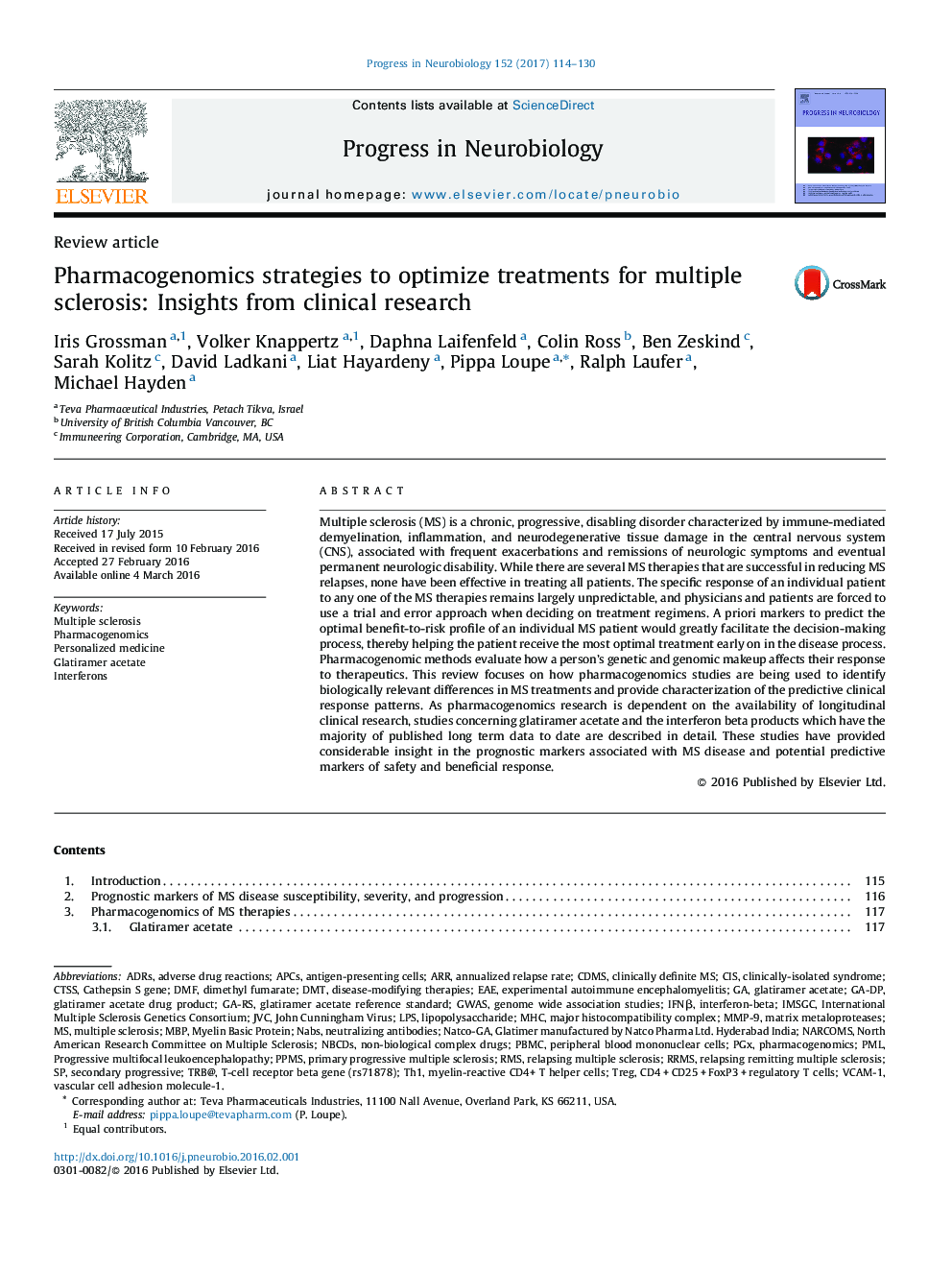| کد مقاله | کد نشریه | سال انتشار | مقاله انگلیسی | نسخه تمام متن |
|---|---|---|---|---|
| 5739148 | 1615363 | 2017 | 17 صفحه PDF | دانلود رایگان |

- While there are several MS therapies none have been effective in treating all patients. A priori markers to predict the optimal benefit-to-risk profile of an individual MS patient would greatly facilitate the decision-making process, thereby helping the patient receive the most optimal treatment early on in the disease process.
- Pharmacogenomic methods evaluate how a person's genetic and genomic makeup affects their response to therapeutics. This review focuses on how pharmacogenomics studies conducted from longitudinal clinical studies concerning glatiramer acetate and the interferon products are being used to identify biologically relevant differences in MS treatments and provide characterization of the predictive clinical response patterns.
- The findings from these pharmacogenomic studies on glatiramer acetate and interferons have provided insights about the prognostic markers associated with MS disease susceptibility and course, as well as the mode of action of MS therapies and characterization of response patterns, both clinically and molecularly.
- While substantial progress has been made towards the prediction of response to MS therapies, neurologists still do not have reliable means to predict which treatment will best fit specific patients.
- It is essential that personalized medicine approaches are validated and clinically applied so as to avoid the current trial-and-error paradigm of treatment allocation.
Multiple sclerosis (MS) is a chronic, progressive, disabling disorder characterized by immune-mediated demyelination, inflammation, and neurodegenerative tissue damage in the central nervous system (CNS), associated with frequent exacerbations and remissions of neurologic symptoms and eventual permanent neurologic disability. While there are several MS therapies that are successful in reducing MS relapses, none have been effective in treating all patients. The specific response of an individual patient to any one of the MS therapies remains largely unpredictable, and physicians and patients are forced to use a trial and error approach when deciding on treatment regimens. A priori markers to predict the optimal benefit-to-risk profile of an individual MS patient would greatly facilitate the decision-making process, thereby helping the patient receive the most optimal treatment early on in the disease process. Pharmacogenomic methods evaluate how a person's genetic and genomic makeup affects their response to therapeutics. This review focuses on how pharmacogenomics studies are being used to identify biologically relevant differences in MS treatments and provide characterization of the predictive clinical response patterns. As pharmacogenomics research is dependent on the availability of longitudinal clinical research, studies concerning glatiramer acetate and the interferon beta products which have the majority of published long term data to date are described in detail. These studies have provided considerable insight in the prognostic markers associated with MS disease and potential predictive markers of safety and beneficial response.
Journal: Progress in Neurobiology - Volume 152, May 2017, Pages 114-130